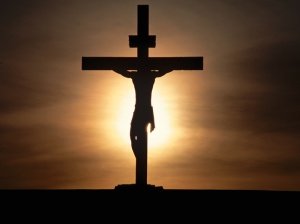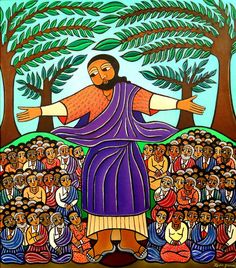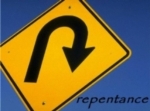11th Sunday after Pentecost, year A, preached 8/20/17
first reading: Isaiah 56:1, 6-8
Psalm 67
second reading: Romans 11:1-2a, 29-32
gospel reading: Matthew 15:10-28
There have been very few times since I began preaching that I have felt compelled to speak directly to current events. But the events of the past week, starting just over a week ago in Charlottesville, have been disturbing. Shocking to some, but not to others.
I don’t want to talk about politics, but I DO want to talk about Jesus.
The most disgusting picture and comment I saw this past week came from a woman, who describes herself as a Christian.
 She posted a picture of the protesters from last Friday night, the protesters who were carrying torches, and yelling things like, “Jews will not replace us,” “blood and soil,” and “one people, one nation, end immigration,” and the caption she added to this picture was, “Let your light so shine before others that they may see your good works and glorify your Father in heaven.”
She posted a picture of the protesters from last Friday night, the protesters who were carrying torches, and yelling things like, “Jews will not replace us,” “blood and soil,” and “one people, one nation, end immigration,” and the caption she added to this picture was, “Let your light so shine before others that they may see your good works and glorify your Father in heaven.”
If that sounds familiar to you, they are Jesus’ words from Matthew 5:16 – part of our baptismal liturgy.
I saw this and was left speechless, and quite frankly sick to my stomach.
So I want to talk about Jesus. I want to talk about Jesus, and the prophet Isaiah, and St. Paul.
And I want to begin by thanking whatever move of the Holy Spirit was at work in creating the lectionary, and for these readings before us today, that seem giftwrapped for a “time such as this.” (Esther 4:14)
A time when people feel free to openly speak hate about other religions, ethnic groups and races. A time when some say we should just stay out of it.
The word of the Lord from the prophet Isaiah, St. Paul, and Jesus himself will have none of this.
“Thus says the Lord: Maintain justice, and do what is right.”
The Hebrew word translated “maintain” also means to “keep” or “guard.” Keep it, tend it – guard justice – do what is right. And by “right” the Lord doesn’t mean just what’s right for me – the Lord means do what IS RIGHT. That means we are called to see beyond our individual interests, beyond our small circle, to do what is best, or right, for everyone.
And then what comes next. The Lord certainly must have surprised not only Isaiah, but all of Israel. God tells them they will not be the only ones gathered into God’s presence.
“The foreigners who join themselves to the LORD… I will bring to my holy mountain, and make them joyful in my house of prayer; for my house shall be called a house of prayer for ALL peoples… I will gather others… besides those already gathered.”
Oh wow. You mean it’s possible for God to love people outside our little circle? People who don’t look like us or act like us, or come from where we’re from?
God’s answer – YES. Which is a very good things for you and me.
In our gospel reading Jesus is confronted by a Canaanite woman. Some people have twisted Jesus’ words to mean that calling her a “dog” meant condemning those who don’t believe in him. He gives harsh treatment to this woman. Problem for the “twisters” is that he’s treating her harshly because she isn’t Jewish.
So if we were to place ourselves in this interchange – along with every other person who wasn’t born a Jew – WE are the dogs.
Jesus was a Jew – born of a Jewish mother, circumcised as a Jew, raised as Jew, was condemned a Jew, died a Jew, and was buried according to Jewish law and ritual.
WE – all of us who were not born Jews and not part of the “irrevocable” promise GOD made to Abraham and his descendants – are the outsiders.
As St. Paul writes, “God has not rejected his people whom he foreknew. The gifts and the calling of God are irrevocable.” God does not break promises – not to the Jewish people, and not to you or me in our baptism. People may break covenants, but God does NOT.
 We are outsiders, only brought into God’s presence – God’s holy mountain – through the grace and mercy of Jesus Christ.
We are outsiders, only brought into God’s presence – God’s holy mountain – through the grace and mercy of Jesus Christ.
So how could a Christian speak hatred, not just at Jews, or blacks or Muslims, or immigrants, but to ANYONE? It should be completely out of character.
As Jesus says in our gospel reading: “What comes out of the mouth proceeds from the heart, and THIS is what defiles. For out of the heart come evil intentions, murder, adultery, fornication, theft, false witness and slander. These are what defile a person…”
A person who has evil intentions towards another – who harbors or speaks hatred – which is a form of false witness and slander – is a defiled person.
So let’s talk about Jesus, let’s talk about Isaiah and St. Paul. Let’s look at our readings for today and say clearly and without reservation that the belief of white supremacy or racial purity and all that it entails: racism, anti-Semitism, hatred and discrimination of other religions and ethnicities, intolerance of other cultures – is SIN. Plain and simple.
These things have no place in a religion whose Lord and Savior commands us to “love your neighbor,”(John 13:34) and even to “love your enemies”(Matt. 5:44).
We may not be overtly hateful like that woman who posted that picture. But it IS part of our bondage to sin to divide ourselves at times into “us” and “them,” uncomfortable as it is to acknowledge.
So when we recognize these darker parts of ourselves, which we all have, it is our calling to confess and try again.
In the words we know so well from 1 John 1:9: “If we confess our sins, God who is faithful and just will forgive our sins, and cleanse us from all unrighteousness.”
Or in the words of Maya Angelou: “Do the best you can until you know better. Then when you know better, do better.”
Or, “Thus says the Lord… do what is right.”
My manuscript says, “Amen” here, but I feel the need to add something. I hope that my words today not only help us to examine ourselves, but also give us something to say when we’re confronted with hate around us. So many times we get caught tongue-tied when surprised with a shocking comment or behavior.
I hope that we leave here a little more confident and prepared to meet hate and respond to it as people of faith, who follow Jesus, the Lord of love, as we sang in our opening hymn, “The King of LOVE, my shepherd is, whose goodness faileth never…”
Now I’ll say – AMEN.







